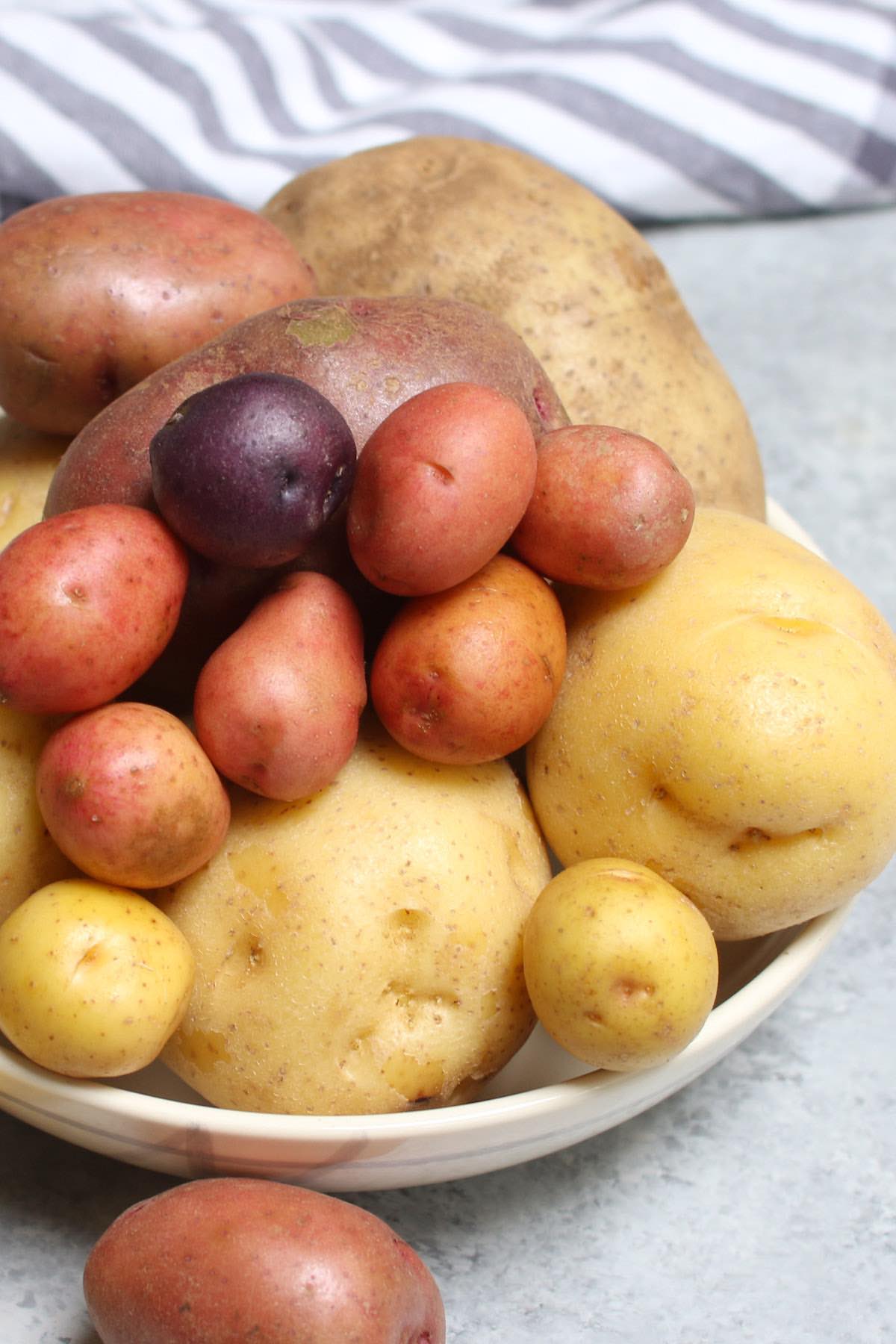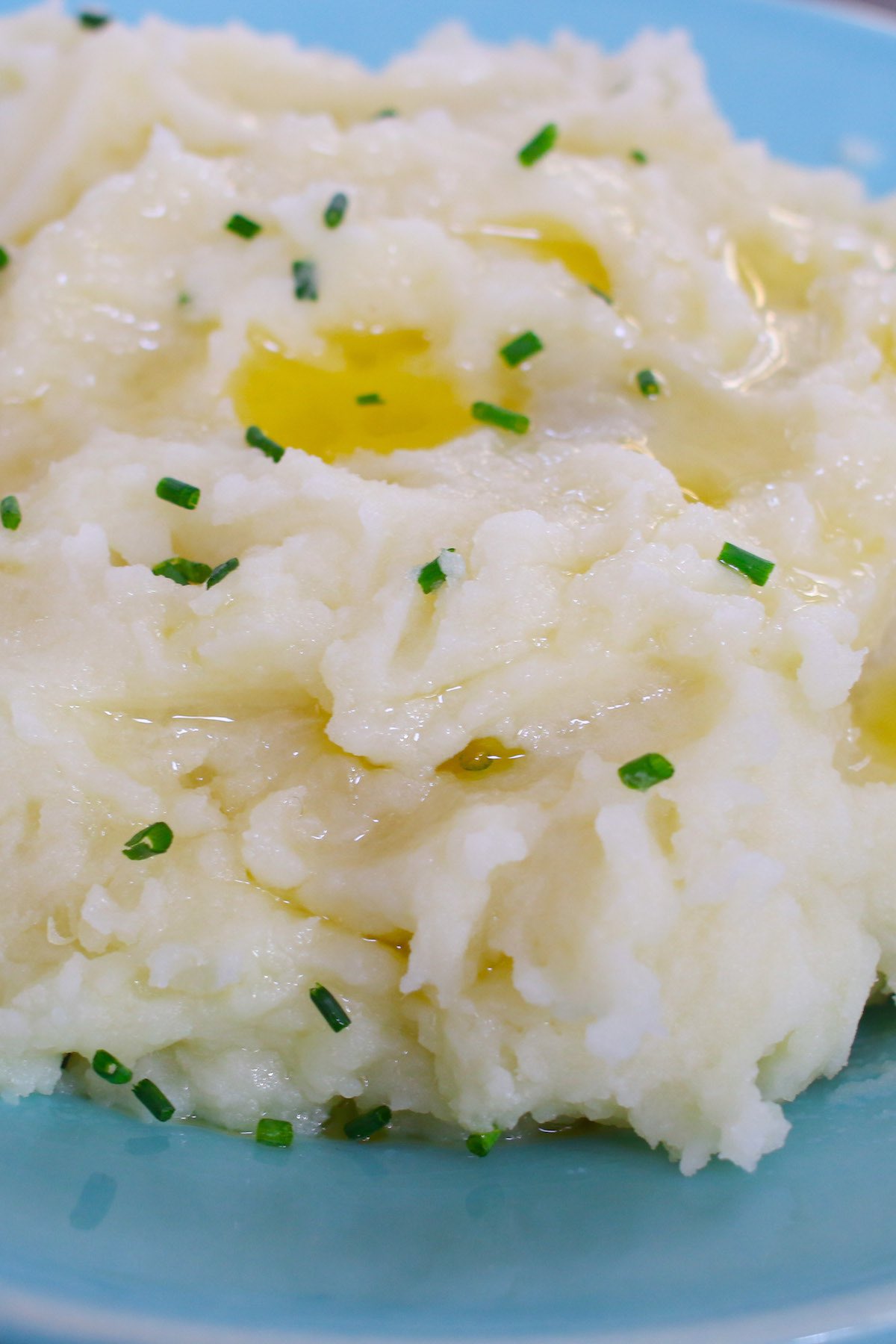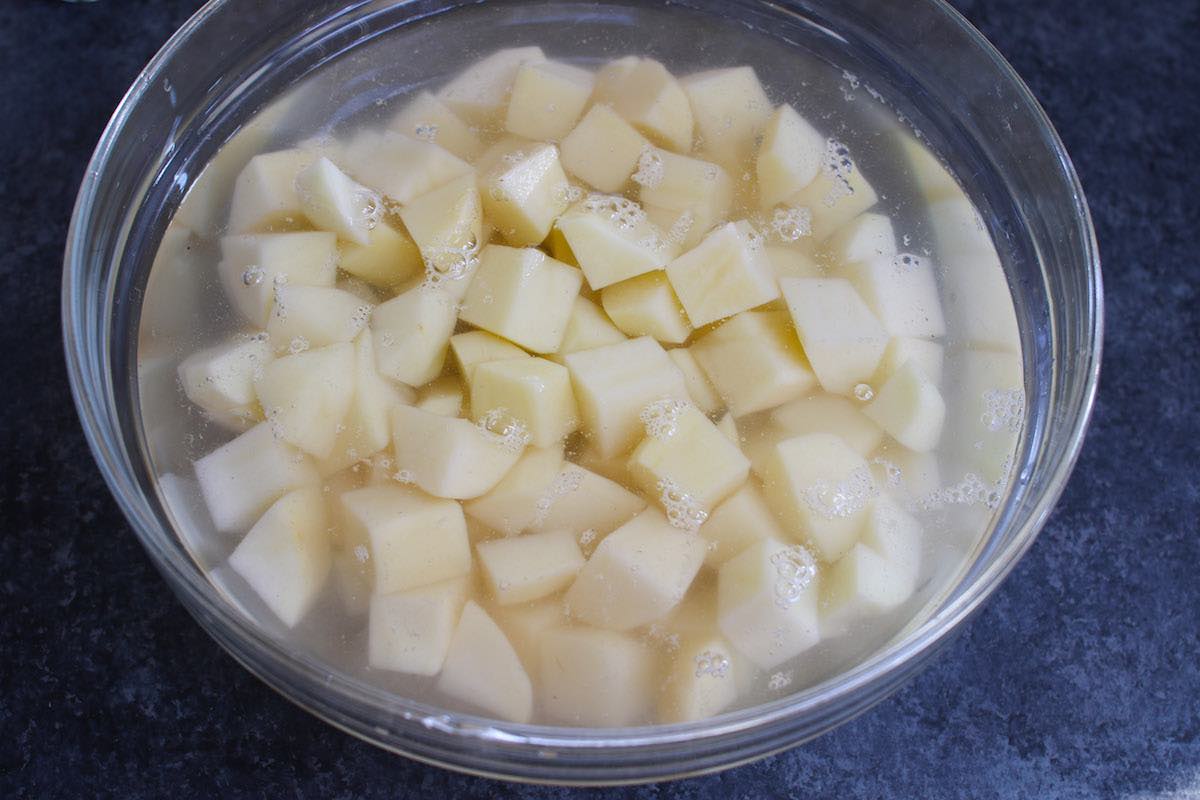How Long Do Potatoes Last
This post may contain affiliate links. Please read the disclosure policy.
How Long Do Potatoes Last? Shelf life depends on the type of potato, storage conditions and preparation method. Find out whether you can still use your potatoes along with storage tips.
You know the drill. Your potatoes have been sitting out for weeks… do you toss them? Or what about those mashed potatoes that have been in the fridge since last week?
Read on to find out how long potatoes last under various conditions and whether they’re still fit for use!
How Long Do Potatoes Last
Bagged potatoes usually have a sell-by date, although you can still use them up to several weeks past the sell-by date. Loose or individual potatoes have no labelling, so follow the guidelines below instead:
| Potato Type | How Long Do Potatoes Last |
| Whole potatoes (uncooked) | 3-4 weeks at room temperature, or 3-4 months at 45-50°F |
| Whole sweet potatoes (uncooked) | 1-2 weeks at room temperature, or 3-4 weeks at 45-55°F |
| Mashed potatoes, baked potatoes, cooked sweet potatoes | 3-4 days in the refrigerator, or 1 month in the freezer |
| Potato salad | 2 hours at room temperature, or 3-5 days in the refrigerator |
Note there’s some variation by type of potatoes. Large russets and baking potatoes can usually last an additional week, while baby potatoes may spoil in just a week or two.
Since potatoes are 80% moisture, the climate will also play a role. Potatoes fare better under humid conditions, whereas a dry climate will cause them to lose moisture and shrivel up more easily.
Tips to Make Potatoes Last Longer
- Store potatoes in a cool, dark place such as a cellar or basement (45-50°F is ideal). Warmer temperatures such as your pantry will cause the potatoes to shrink and sprout. But cooler temperatures like the fridge will convert starch to sugar, making the potatoes sweet.
- Remove them from a plastic bag and place them in a paper bag or cardboard box to ensure ventilation and prevent condensation.
- Keep the potatoes away from onions or fruits, which release ethylene gas that makes potatoes spoil faster.
- Avoid washing them prior to storing, as it can spur mold growth.
- Check them weekly and discard any that have become shriveled or soft.
If you’ve already cut up the potatoes, drop them into cold salted water to stop oxidation temporarily. They’ll last up to 12 hours or overnight for use the next day.
Always store cooked potatoes in an airtight container or resealable bag to prevent contamination.
How to Tell if Potatoes Have Gone Bad
The following signs indicate rotten or spoiled potatoes:
- Dark blotches and discoloration on the skin
- Green color below the skin – a sign that toxic solanine is forming
- Mushiness or softness
Always discard spoiled potatoes to avoid potential health risks. Note that new white sprouts do not necessarily indicate spoilage and small ones can often be cut off before cooking.
Potato recipes:
If you have leftover mashed potatoes, try making fried mashed potato balls, mashed potato pancakes or sweet potato fritters.
© TIPBUZZ. Images and text on this website are copyright protected. Please do not post or republish without permission. If you want to republish this recipe, please link back to this post. This post may contain affiliate links. Read the disclosure policy here.









